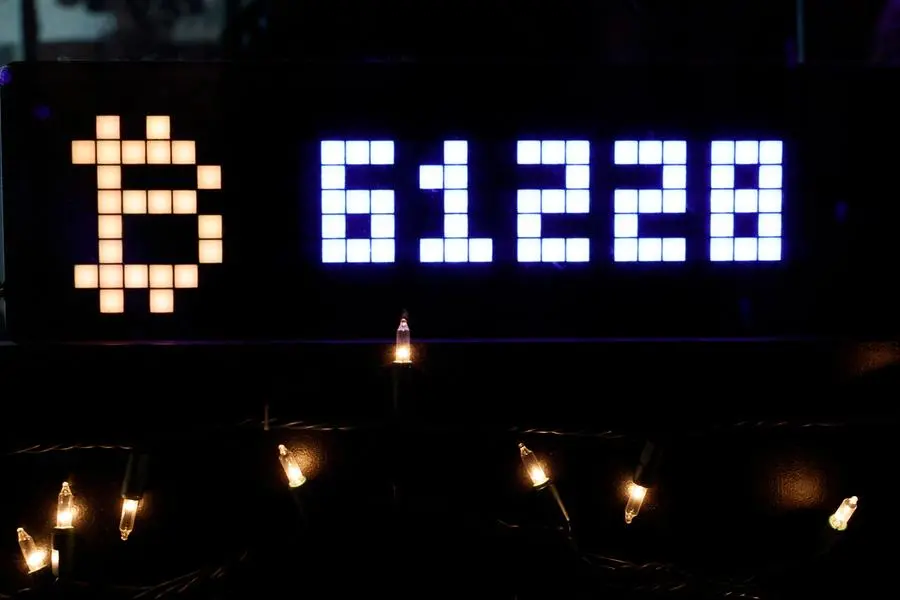PHOTO
South Korea's so-called "kimchi premium" on bitcoin prices hit a two-year high this week, a cryptocurrency data firm said, as the virtual token broke records globally.
Bitcoin hit a peak above $69,000 Tuesday, beating its previous high achieved in November 2021, buoyed by growing trading accessibility of the world's biggest cryptocurrency, even as supply remains tight.
The "kimchi premium" -- named after the country's fermented side dish -- refers to the disparity between bitcoin prices on Korean exchanges and those on international platforms.
Bitcoin prices are higher in South Korea largely because of high local demand combined with Seoul's strict financial control and trading regulations, as well as the lack of spot bitcoin exchange-traded funds (ETFs) in the market.
The kimchi premium reached 10 percent, a two-year high, at one point this week, according to a tweet posted by CryptoQuant CEO Ki Young Ju.
"Korean retail investors are getting back," he wrote on the platform known as X.
The index is a "pure retail FOMO (fear of missing out) indicator because 1/ There are no notable crypto funds in Korea 2/ Korea has very strict capital control policies", he said.
As of Friday morning, the bitcoin premium in Seoul stood at 5.59 percent.
The kimchi premium seemingly offers an opportunity for traders to arbitrage by buying cryptocurrency cheaper abroad and selling it at a higher price domestically.
But South Korean traders who buy huge amounts of cryptocurrency from overseas platforms for arbitrage purposes may face penalties in accordance with the country's relevant laws.
Regulations in South Korea also effectively prevent foreign investors from participating in trades on South Korean cryptocurrency exchanges.
The hyper-wired South emerged as a hotbed for cryptocurrency trading in the late 2010s, at the time accounting for some 20 percent of global bitcoin transactions -- about 10 times the country's share of the world economy.
But spectacular, criminal implosions like that of crypto king Do Kwon's tokens have shaken retail confidence and drawn official scrutiny to the sector in recent years.
Local officials have expressed concern over rising criminality linked to the industry, even last year creating a new inter-agency investigative unit to fight crypto crime.





















